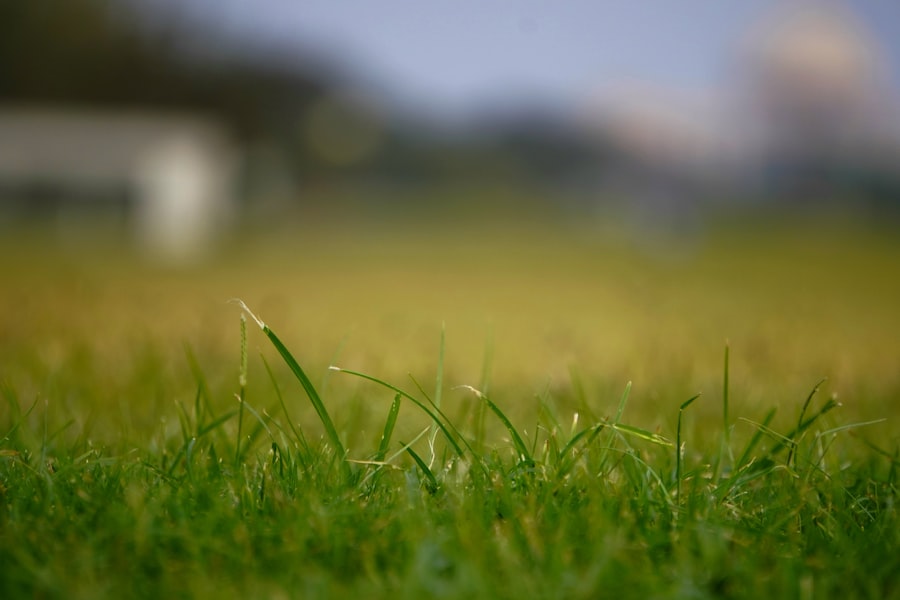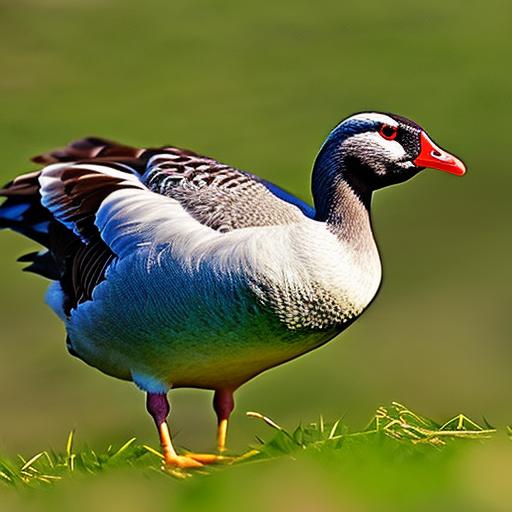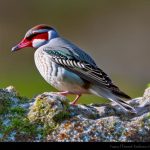Geese on the lawn can be a common problem for many homeowners. These large birds are attracted to lawns because they provide a source of food and water. While it may seem harmless at first, having geese on your lawn can actually be quite frustrating and even dangerous. They can leave behind droppings that are not only unsightly but also pose health risks. Additionally, geese can become aggressive and territorial, especially during nesting season. In this article, we will explore different methods to keep geese off the lawn and maintain a clean and safe outdoor space.
Key Takeaways
- Geese on the lawn can cause damage and health risks.
- Understanding geese behavior can help prevent them from landing on the lawn.
- Risks associated with geese on the lawn include property damage and potential disease transmission.
- Natural ways to keep geese off the lawn include planting certain vegetation and using decoys.
- Installing physical barriers, using repellents, and scaring geese away with noise and visual deterrents are effective methods for keeping geese off the lawn.
Understanding the behavior of geese
To effectively address the issue of geese on the lawn, it is important to understand their behavior. Geese are attracted to lawns because they offer a source of food, particularly grass and other vegetation. They also prefer open spaces where they can easily spot predators. Additionally, geese are known for their nesting habits and territorial behavior. During nesting season, which typically occurs in the spring, geese become more aggressive and protective of their nests. This can lead to confrontations with humans or other animals that come too close to their nesting area.
The risks associated with geese on the lawn
Having geese on the lawn can pose several risks, both in terms of health and safety. One of the main concerns is the health risks associated with goose droppings. Goose droppings can contain bacteria such as E. coli and Salmonella, which can cause illness if ingested or come into contact with open wounds. This is particularly concerning if you have children or pets who play on the lawn. In addition to health risks, geese can also become aggressive and territorial, especially during nesting season. They may hiss, flap their wings, or even charge at humans or other animals that come too close to their nests.
Natural ways to keep geese off the lawn
There are several natural ways to deter geese from your lawn. One method is to plant certain types of grass that geese find less appealing. For example, Kentucky bluegrass and Bermuda grass are known to be less attractive to geese. Another natural deterrent is the use of decoys. Placing decoy predators, such as plastic owls or coyotes, on the lawn can help scare away geese. Additionally, maintaining a healthy lawn by regularly mowing and removing weeds can discourage geese from landing and feeding on your lawn.
Installing physical barriers to prevent geese from entering the lawn
Installing physical barriers is another effective way to keep geese off the lawn. Fencing or netting can be used to create a physical barrier that prevents geese from entering your property. It is important to choose a fence or netting that is tall enough to deter geese from flying over it. Additionally, proper installation and maintenance are crucial to ensure that the barrier remains effective over time. Regularly inspecting the fence or netting for any damage or gaps is essential to prevent geese from finding a way in.
Using repellents to discourage geese from landing on the lawn

Repellents can also be used to discourage geese from landing on the lawn. There are various types of repellents available, including sprays and granules. These products typically contain ingredients that emit an odor or taste that is unpleasant to geese. When applying repellents, it is important to choose a safe and effective product that will not harm other animals or plants in the area. It is also important to follow the instructions carefully and reapply as needed, especially after rain or heavy watering.
Scaring geese away with noise and visual deterrents
Noise makers and visual deterrents can be effective in scaring geese away from the lawn. Noise makers, such as air horns or whistles, can startle geese and make them uncomfortable. Visual deterrents, such as flags or balloons, can create a sense of danger and make geese think twice before landing on the lawn. It is important to rotate these deterrents regularly to prevent geese from becoming accustomed to them. This will help maintain their effectiveness over time.
Seeking professional help for persistent geese problems
If the problem of geese on the lawn persists despite your efforts, it may be necessary to seek professional help. A professional wildlife control expert can assess the situation and provide effective solutions tailored to your specific needs. They may recommend additional methods such as habitat modification or hazing techniques to deter geese from your property. Hiring a professional can save you time and frustration, and ensure that the problem is addressed in a safe and humane manner.
Maintaining a clean and uninviting lawn to discourage geese
Maintaining a clean and uninviting lawn is crucial in deterring geese from your property. This includes regularly removing debris, such as fallen leaves or branches, that can attract geese. It is also important to keep the lawn well-maintained by regularly mowing and removing weeds. Additionally, using scare tactics such as motion-activated sprinklers can help keep geese away by creating an unpredictable environment that they find uncomfortable.
Conclusion and summary of effective methods for keeping geese off the lawn
In conclusion, having geese on the lawn can be a frustrating and potentially dangerous problem. Understanding their behavior and implementing effective deterrents is key to keeping them off your property. Natural methods such as planting certain types of grass or using decoys can be effective in deterring geese. Installing physical barriers, using repellents, scaring geese away with noise and visual deterrents, seeking professional help if needed, and maintaining a clean and uninviting lawn are all effective strategies to keep geese off the lawn. It is important to try different methods and find what works best for your specific situation. By taking proactive measures, you can create a safe and enjoyable outdoor space free from geese.
If you’re looking for effective ways to keep geese off your lawn, you may also be interested in learning about the best kind of coop for chickens. A well-designed chicken coop not only provides a safe and comfortable home for your feathered friends but can also help deter geese from invading your property. Poultry Wizard offers valuable insights on what kind of coop is best for chickens, including options like the SnapLock Chicken Coop and the Chicken Coop Chester SC. Check out their informative article here to discover how a well-designed chicken coop can contribute to maintaining a goose-free lawn.
FAQs
What are geese?
Geese are waterfowl birds that are commonly found in North America, Europe, and Asia. They are known for their distinctive honking sound and their V-shaped flying formation.
Why do geese come onto lawns?
Geese are attracted to lawns because they provide a source of food and water. They also offer a safe place for geese to rest and nest.
What problems can geese cause on lawns?
Geese can cause a number of problems on lawns, including damaging grass and plants, leaving droppings that can be unsightly and unsanitary, and creating noise and disturbance.
What are some ways to keep geese off lawns?
There are several ways to keep geese off lawns, including using physical barriers like fences or netting, using repellents like noise makers or decoys, and modifying the landscape to make it less attractive to geese.
Are there any humane ways to keep geese off lawns?
Yes, there are several humane ways to keep geese off lawns, including using non-toxic repellents, modifying the landscape to make it less attractive to geese, and using noise makers or decoys that do not harm the birds.
Is it legal to harm or kill geese?
In most cases, it is illegal to harm or kill geese without a permit. It is important to check local laws and regulations before taking any action to control geese on your property.
Meet Walter, the feathered-friend fanatic of Florida! Nestled in the sunshine state, Walter struts through life with his feathered companions, clucking his way to happiness. With a coop that’s fancier than a five-star hotel, he’s the Don Juan of the chicken world. When he’s not teaching his hens to do the cha-cha, you’ll find him in a heated debate with his prized rooster, Sir Clucks-a-Lot. Walter’s poultry passion is no yolk; he’s the sunny-side-up guy you never knew you needed in your flock of friends!







